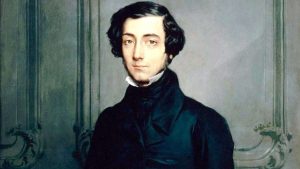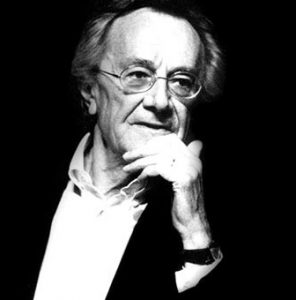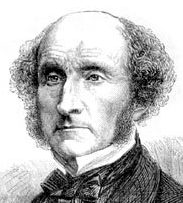A dangerous and continuing assault on free speech is growing on our campuses and across our society. It is a threatening wave of illiberalism. Tocqueville long ago warned that a tyranny of the majority was the principle danger inherent in any democracy. Majority despotism could overwhelm public discourse, ultimately leading to the danger of a restructured and intolerant government. This despotism, he observed, is rooted within the majority’s values and mores, and pose the greatest threat to liberty.
Tocqueville’s concerns are in full display today at Middlebury College, Berkeley, Auburn and other universities. Protesters at each institution suppressed the expression of political views seen as opposed to their own. These protesters claim their actions are justified because these views offended their sense of social and personal acceptability. And further, they completely silenced these voices before words were ever uttered, deploying uncivilized tactics. In turn, each of these institutions were willing accomplices to the speech suppression. Each was unwilling to create and protect an environment of full and free political speech, a base necessity for any institution of higher learning in the United States.
Social Demands Versus Political Free Speech
We are at a crossroads between the social demands of one group (the protesters) and the political demands of another (the speakers), as Tocqueville foresaw. A clear and present conflict exists between the subjective social views of the first group, and the free speech rights of the second group. In effect, protesters insist that the mere expression of opposing political views threaten their equality rights. Accordingly, they demand that these views cannot be expressed. They insist upon silence.

By contrast, the speakers maintain that their fundamental liberty right to freely express their political and social views cannot be compromised. This contest, between claims of equality impairment by the majority, and claims of liberty impairment by the minority, deeply troubled Tocqueville as he observed the potential for a tyranny of the majority.
Creation of a Tyrannical Majority in Public Discourse
The events at these campuses illustrate how a majority becomes tyrannical. Simply said, the protesters at each of these events effectively embodied the majority. They employed their own modern-day America Reign of Terror tactics to suppress political speech they found offensive. Moreover, their physical and sometimes violent actions succeeded, as did mere threats of (or the potential for) violence (witness Berkeley and Anne Coulter). The suppressed views they found unacceptable. Their actions were despotic, in the worst tradition of tyrannical majorities.
Despotic majorities pose a real threat to the type of democracy embodied in American constitutional principles. The nature of the suppressed social and political views is not relevant. For example, it matters little whether one experiences Charles Murray’s views as offensive to one’s values and mores. The forcible suppression of any type of political speech, whatever its content, is a grave attack on the core concepts underlying our democracy.
Apologists for Speech Suppression Don’t See the Danger
Other observers simply do not perceive any such threat. They insist that “offensive” political speech can, under our principles, and perhaps must, be silenced. Witness the rather astounding political speech views of New York University professor Ulrich Baer, recently published by the New York Times.

Baer premised his views on reliance upon the French philosopher Jean-Francois Lyotard’s free speech analysis. As Baer put it, Lyotard “shifted attention away from the content of free speech to the way certain topics restrict speech as a public good.” As we describe below, speech as a public good, itself, is a dubious claim. But from there Baer makes the following assertions:
The recent student demonstrations . . . should be understood as an attempt to ensure the conditions of free speech for a greater group of people, rather than censorship. . . . When [the] views [expressed by the silenced speakers] invalidate the humanity of some people, they restrict speech as a public good. . . .
The great value and importance of freedom of expression, for higher education and for democracy, is hard to overestimate. But it has been regrettably easy for commentators to create a simple dichotomy between a younger generation’s oversensitivity and free speech as an absolute good that leads to the truth. We would do better to focus on a more sophisticated understanding, such as the one provided by Lyotard, of the necessary conditions for speech to be a common, public good. This requires the realization that in politics, the parameters of public speech must be continually redrawn to accommodate those who previously had no standing. . . (emphasis added).
There is so much here that is fundamentally incorrect. Baer simply does not understand the nature of political free speech in America.
Political Free Speech is an Individual Right – It is Not a “Public Good”
For one, we suggest that political free speech is not a “public good,” nor should it be measured in some type of utilitarian manner. Rather, the right to political free speech is a core, fundamental individual liberty. It is a foundational right of any person in the United States to express his own political views, whatever they might be. A person need not consider whether any listener perceives his political views as “invalidating the humanity” of the listener. Indeed, there is no “greater group of people,” as Baer puts it, in the context of political speech. Free political speech in the United States is not a group right; it is a fundamental individual right.
Baer implies that the speaker must self-censor. The speaker must account for the thoughts and perspectives of others in determining the content of his political expressions. Presumably, Baer prefers the approach of Communist China, where censors pre-select the political views that are read or spoken. Here, Baer grants the protesters the power to decide the content of the political speech of another. This, we suggest, is a philosophy repugnant to the long history of political speech protections in the United States. In mass, protesters can quickly create a tyranny of the majority that threatens basic liberty.
There is No Need to Alter the “Parameters of Public Speech”
The notion that “in politics, the parameters of public speech must be continually redrawn to accommodate those who previously had no standing” is, simply, wrong. Baer illustrates his view with the claim that “the rights of transgender people for legal equality and protection against discrimination are a current example in a long history of such redefinitions.”
Yes, in the long history of the United States there are many instances of equal rights denial and discrimination. Most observers would conclude that there has been great progress in reducing and, in many instances, eliminating, equal rights denial.
But the solution to an equal rights problem has never been the denial of the political free speech rights of the claimed oppressors. Or the denial of anyone’s political free speech rights. Never have we sacrificed political free speech liberty at the altar of inequality to achieve equal rights. Indeed, we can think of no instance in American history where “the parameters of public speech” were redrawn to accommodate equality. Quite the opposite. Equality was achieved because of political free speech.
Tyranny of the Majority
The values and mores of any group may not impair any individual’s right to free and full expression of his political views. Majorities who impair these rights, on whatever basis, are tyrannical. And they are a danger to our society. Baer mocks the claim of “liberal free-speech advocates . . . that the views of these individuals must be heard first to be rejected.” But in doing so he misses the point.
The deep and inherent danger in Baer’s world, which he doesn’t perceive, is that the speaker is not the final arbiter of the content of his own political speech. The speaker must first yield the floor to someone else. That third-party determines what can and cannot be expressed. And when this fact is inevitably extrapolated to a context where the majority exercises that discretion, then we destroy the foundations of liberty.
Limits on Political Speech? We Think Not
But Baer doesn’t stop there:
The idea of freedom of speech does not mean a blanket permission to say anything anybody thinks. It means balancing the inherent value of a given view with the obligation to ensure that other members of a given community can participate in discourse as fully recognized members of that community. Free speech protections . . . should not mean that someone’s humanity, or their right to participate in political speech as political agents, can be freely attacked, demeaned, or questioned.
Quite the contrary. The idea of “freedom of political speech” is a blanket to say anything anybody thinks, within the rather few limitations proscribed by the Supreme Court over the last 230 years. Who, Professor Baer, gets to exercise the “balancing” that you demand applies? Which person or group determines the “inherent value of a given view?” Who judges whether what I say is “demeaning?” Not to mention, of course, who determines what “demeaning” really means. We detect fresh remnants of the Sedition Act of 1798 within Baer’s philosophy. We suppose the impaneling of speech judges and juries. Perhaps followed by guillotines.
In Professor Baer’s world does a transgender group have that power over my political speech? Does a single transgender person have that right?
If I “offend” an Italian by expressing disparaging views about Italy’s dysfunctional political system, may he suppress my speech? Perhaps these words are offensive to Italians (though I doubt it). But should a single offended Italian have the power to prevent my expression? Who has the right to impact the content of my political speech? Does a third-party have that power? Or do I.
The Real Danger
No, it is philosophies such as those of Professor Baer that are the real danger. We cannot tolerate a tyranny of the majority in political expression. We must preserve, protect and defend diversity of political thought in the United States. It is our beacon of political freedom. We can not survive without it.

